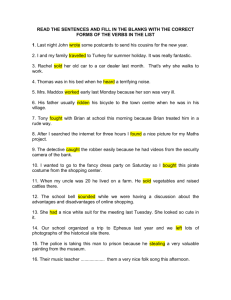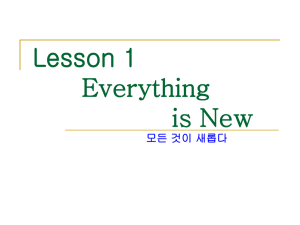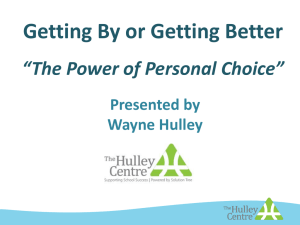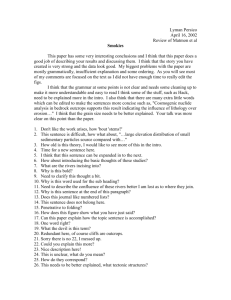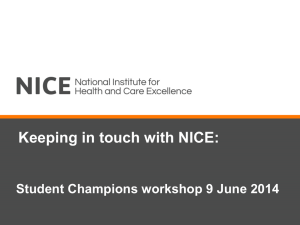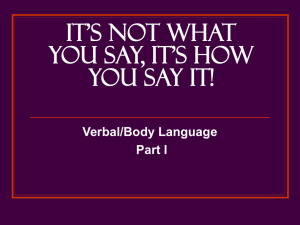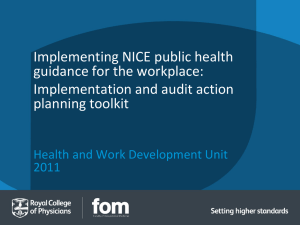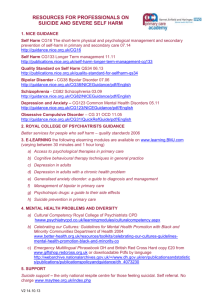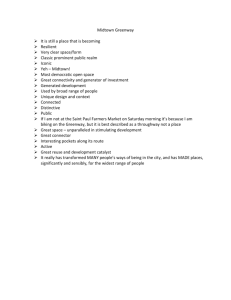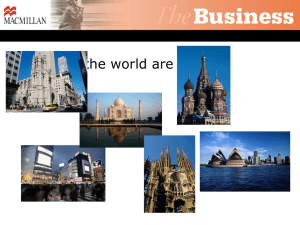Core principles of NICE`s work
advertisement
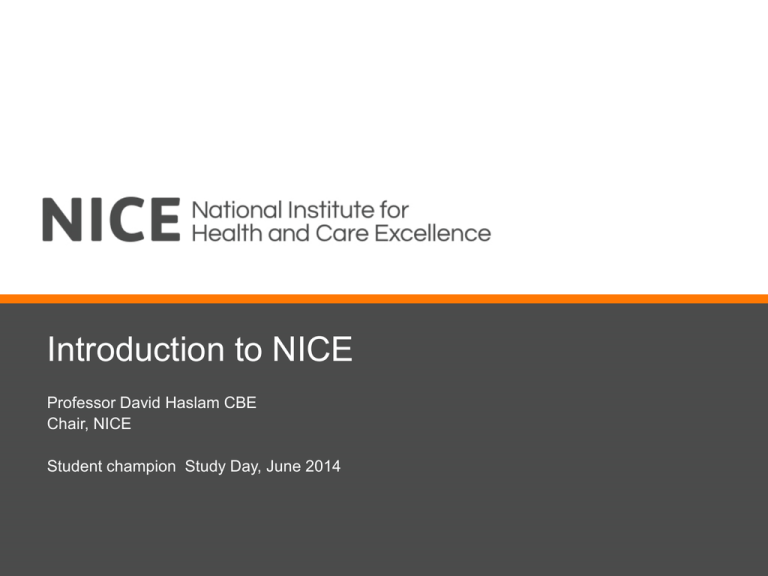
Introduction to NICE Professor David Haslam CBE Chair, NICE Student champion Study Day, June 2014 The background: why NICE was set up • Established in 1999 • Aim: to reduce variation in the availability and quality of treatments and care (the so called ‘postcode lottery’) • To resolve uncertainty about which medicines and treatments work best and which represent best value for money for the NHS “Probably not, but it’s worth a bloody good try.” Frank Dobson, Health Secretary, who established NICE in 1999, when asked whether he thought it would work. Expectations • • • • • • National, authoritative source of advice Guidance based on effectiveness and cost effectiveness Inclusive and consultative approach Independent and efficient A service for the NHS and the public which uses it Broad support from professional and patient groups Core principles of NICE’s work • • • • • • • • Based on the best evidence available Expert input Patient and carer involvement Independent advisory committees Genuine consultation Regular review Open and transparent process Social values and equity considerations A Brief History 1999: Technology appraisals Clinical guidelines 2002: Interventional procedures Implementation 2005: Public health guidelines 2009: Cost saving MedTec programme (new technologies) Diagnostics NHS Evidence 2011: National Prescribing Centre (now Medicines Prescribing Centre) 2013: Social care guidelines Highly specialised technologies NICE Guidance by Year 300 Evidence updates Number of publications 250 Medical devices Diagnostics Quality Standards CCGO QIPP 200 QOF 150 Clinical Guidelines Accreditation Interventional Procedures Public Health 100 Appraisals 50 0 00/01 01/02 02/03 03/04 04/05 05/06 06/07 Year 07/08 08/09 09/10 10/11 11/12 12/13 The NICE portfolio in 2014 Perceptions of NICE: 1999 Supportive Government, health professionals Curious Advocacy groups, academics, media Sceptical/hostile Industry Blissfully ignorant Public Perceptions of NICE: 2014 Supportive Government, health professionals, academics, advocacy groups, industry (most) Curious Media (most), public Sceptical/hostile Industry (some) media (some) Blissfully ignorant "TheTriumph of NICE" “NICE may prove to be one of Britain’s greatest cultural assets along with Shakespeare, Newtonian physics, The Beatles, Harry Potter and the Teletubbies” Richard Smith, Editor. British Medical Journal 2004
